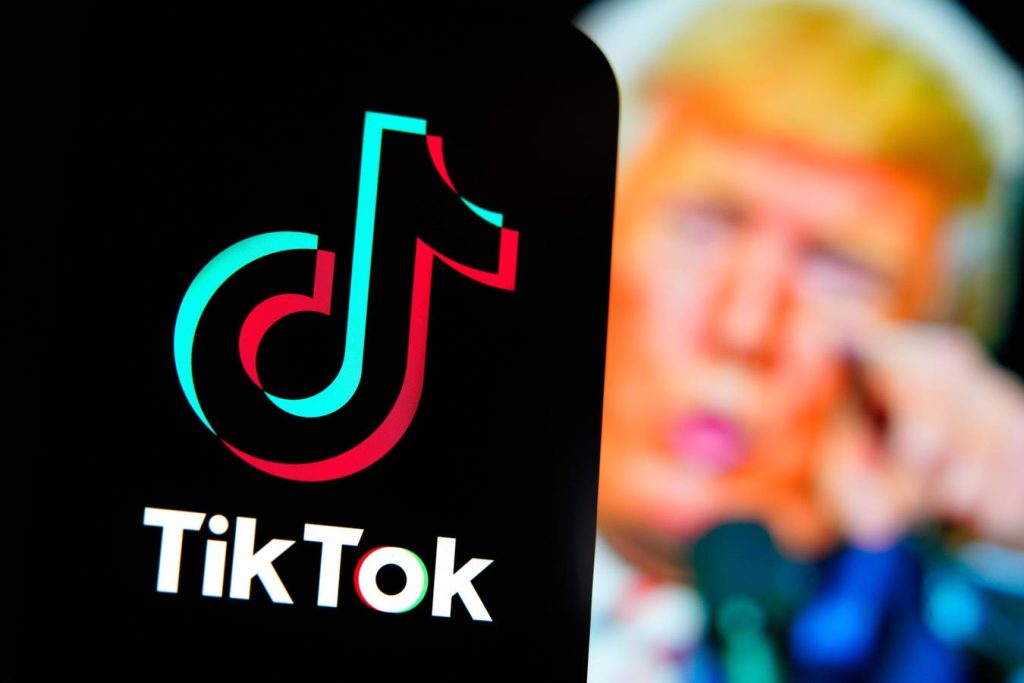TikTok’s Legal Gambit and the Looming Ban: A Constitutional Showdown
The popular social media platform TikTok finds itself entangled in a high-stakes legal battle against a looming ban in the United States. On Monday, the company petitioned a federal appeals court for a temporary injunction against a law slated to take effect on January 19th, which could effectively prohibit the app’s operation within the country. Central to TikTok’s argument is the assertion that the court should postpone the law’s implementation to allow the incoming Biden administration time to review and potentially revise its stance on the matter. This rationale, however, raises significant constitutional questions and highlights the complex interplay between presidential authority and legislative power.
Legal experts argue that TikTok’s plea for a delay based on a future administration’s potential actions holds little legal merit. Courts are not empowered to suspend laws simply because a succeeding president might harbor different policy preferences. Furthermore, the power to repeal legislation rests solely with Congress, not the executive branch. This fundamental principle of separation of powers underscores the limitations on presidential discretion when it comes to nullifying existing laws. The "Take Care" clause of the Constitution mandates that presidents "take care that the laws be faithfully executed," obligating them to uphold the will of Congress, which overwhelmingly approved the TikTok ban last April. This constitutional provision places a significant constraint on a president’s ability to selectively enforce or disregard laws based on personal or political considerations.
The Trump administration’s approach to the TikTok ban could set a precedent extending far beyond the realm of social media. The administration’s decision on whether to enforce the ban could shape the very definition of presidential authority in upholding or disregarding laws passed by Congress. While presidents have historically exercised discretion in enforcing certain laws, often opting not to pursue legal action against perceived minor infractions, the TikTok case presents a distinct challenge. The impending ban carries significant financial implications for major American companies like Apple, Google, and Amazon, imposing multi-billion dollar fines if they continue to host the app after the deadline. Even if the Trump administration signals an unwillingness to collect these fines, the threat of future enforcement by a subsequent administration creates a legal uncertainty that these companies cannot afford to ignore.
TikTok’s claim that allowing the incoming administration time to formulate its position could render the Supreme Court review unnecessary also faces legal scrutiny. A case becomes moot only when the underlying issue ceases to exist, rendering a court ruling inconsequential. Mere non-enforcement or a refusal to defend a law does not negate the legal question of its constitutionality. The Supreme Court has previously addressed cases where the government abandoned its defense of a law, demonstrating a willingness to adjudicate the matter even in the absence of active government participation. This precedent suggests that even if the Trump administration chooses not to defend the TikTok ban, the Supreme Court could appoint an alternative legal representative to argue the case.
While the TikTok law grants the president some limited authority, such as a potential 90-day extension of the ban’s effective date under specific conditions, these provisions do not address the fundamental constitutional question at hand. The core issue remains whether the law itself is permissible under the Constitution, a question that neither presidential extension nor a potential sale of TikTok to a U.S. company can resolve. The upcoming legal battle will ultimately determine the fate of TikTok in the United States and potentially shape the boundaries of presidential power in enforcing existing legislation.
The Trump administration’s handling of the TikTok ban has broader implications beyond the immediate fate of the app. It offers a glimpse into the administration’s approach towards laws it disagrees with and raises concerns about the potential for selective enforcement. Previous instances of non-enforcement have landed the Trump administration in legal trouble, notably a 2021 court ruling that found the administration’s failure to fully enforce the Affordable Care Act violated the "Take Care" clause. This history raises the question of whether the administration might choose to selectively enforce other laws, impacting areas ranging from election integrity to immigration. The TikTok case thus represents a crucial test case with far-reaching consequences for the balance of power between the executive and legislative branches and the president’s constitutional duty to faithfully execute the laws.
The TikTok ban presents a complex legal and constitutional challenge, intertwining issues of national security, free speech, and presidential authority. The upcoming court battle will not only determine the future of TikTok in the U.S. but also potentially shape the understanding of presidential power in upholding and enforcing the laws of the land. The implications of this case extend far beyond the realm of social media, highlighting the tension between executive discretion and the constitutional obligation to faithfully execute the laws passed by Congress. The outcome of this legal showdown will undoubtedly have lasting consequences for the balance of power within the American government.


